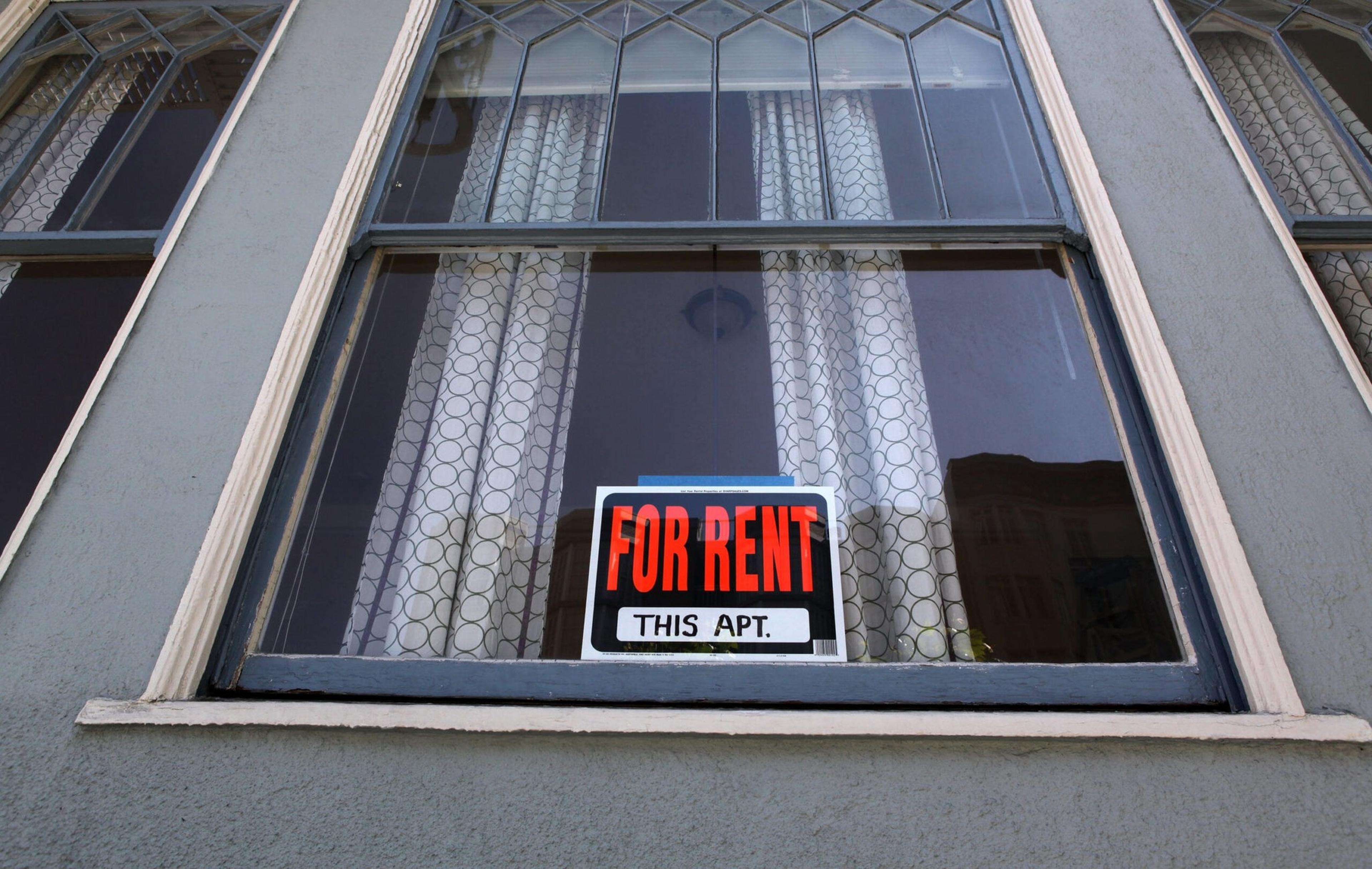A ballot measure to tax landlords with vacant units with the goal of getting them back on the market likely won’t make much of a dent on housing prices, according to an analysis by the city.
Called Prop. M, the proposed tax would apply to buildings with three or more units with some exceptions, like those in need of repairs. Its proponents argue that it will incentivize landlords to fill empty units, pointing to a Budget and Legislative Analyst report (opens in new tab) showing that 40,000 units were sitting empty in the city.
But a report (opens in new tab) by the Controller’s Office estimated that there are only about 4,000 units potentially affected by the new tax. Units exempted from the tax include single-family homes, duplexes and units under construction, among other exemptions. Those subject to the tax would owe between $2,500 and $5,000 per vacant unit in the first year, and rising up to $20,000 by the third year for every unit that has been empty for longer than six months.
Most of those landlords would choose to simply pay the tax rather than lower rents or take other actions to fill their units, altogether generating $9 million in its first year and $15.4 million by 2026, according to the Controller’s Office.
Steven Buss, director at Grow SF, called the number of units potentially affected by the tax “laughably small.” In its voter guide (opens in new tab), the group argues that Prop. M will neither incentivize owners to change their behavior nor raise a meaningful amount of money for affordable housing.
Using new census data on vacancies, the analysts estimated that of the 4,000 units potentially subject to the tax, owners of around 250 units might either sell their unit or lower rents, altogether reducing housing prices by less than .1%. Others might change the timing of rental agreements to avoid paying the tax, since it only applies to units that sit vacant for more than six months.
The owners of around 3,000 units are expected to pay the tax, generating an estimated $15.4 million per year by 2026 that would go into a Housing Activation Fund for affordable housing and rent subsidies.
Shanti Singh, a tenants rights organizer who is a proponent for the tax, said the study’s findings aren’t a surprise but that even a small number of additional units on the market could make a difference, especially when compared to San Francisco’s slow housing development pace.
“Putting a few thousand units online is not inconsequential,” Singh said.
The push for Prop. M was led by the Democratic Socialists of America and Faith in Action Bay Area and counts Supervisor Dean Preston among its supporters. Groups including Grow SF and SPUR endorsed a “no” vote on the measure, while the pro-housing group YIMBY Action endorsed the tax with some ambivalence, noting its many exemptions.
The new numbers come out well below the Prop. M revenue estimate of $37 million annually by 2026 that will appear on November ballots. Under the city’s code, any legislation, including ballot measures, that may affect the city’s economy is subject to an analysis that gauges its impact in addition to routine Controller’s Office analyses conducted for all ballot measures.
Ted Egan, San Francisco’s chief economist, said the newer Prop. M estimates took into account newly released 2020 U.S. Census data that, for the first time, asked homeowners why their units were vacant. While the report offers just a guess as to how landlords would react, Egan said, the census data gave the city’s analysts more insight into vacancies. That led them to estimate that a tax would push just over a quarter of those owners to change their behavior, in part because the potential lost income from lowering rents exceeds the cost of the tax.
“Those long-term vacancies are probably due to a lack of demand,” Egan said.
Still, Singh said she’s optimistic that the tax will pass, since it’s supported by housing groups across the political spectrum—including YIMBY Action, which confirmed it will keep its “yes” endorsement on the measure.
“Even though this is an incremental measure, it’s something in the wide world of systemic things,” said Nadia Rahman with YIMBY Action.
